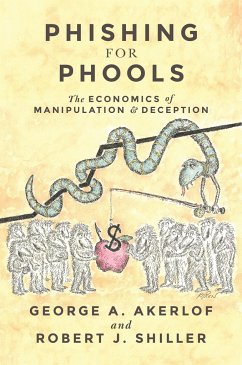Ever since Adam Smith, the central teaching of economics has been that free markets provide us with material well-being, as if by an invisible hand. In Phishing for Phools, Nobel Prize-winning economists George Akerlof and Robert Shiller deliver a fundamental challenge to this insight, arguing that markets harm as well as help us. As long as there is profit to be made, sellers will systematically exploit our psychological weaknesses and our ignorance through manipulation and deception. Rather than being essentially benign and always creating the greater good, markets are inherently filled with tricks and traps and will "phish" us as "phools." Phishing for Phools explores the central role of manipulation and deception in fascinating detail in each of these areas and many more. It thereby explains a paradox: why, at a time when we are better off than ever before in history, all too many of us are leading lives of quiet desperation. At the same time, the book tells stories of individuals who have stood against economic trickery - and how it can be reduced through greater knowledge, reform, and regulation.
"[Akerlof and Shiller] want to go far beyond behavioral economics, at least in its current form. They offer a much more general, and quite damning, account of why free markets and competition cause serious problems. . . . They are intellectual renegades. . . . Akerlof and Shiller make a convincing argument that phishing occurs because of the operation of the invisible hand, not in spite of it. . . . [This] extraordinary book tells us something true, and profoundly important, about the operation of the invisible hand."--Cass Sunstein, New York Review of Books








